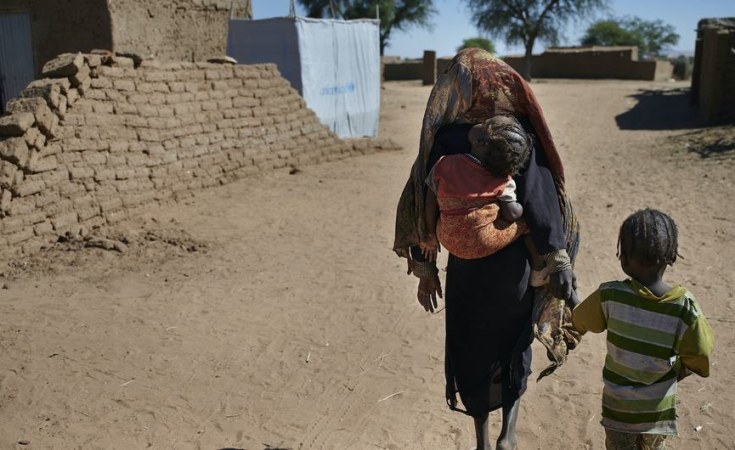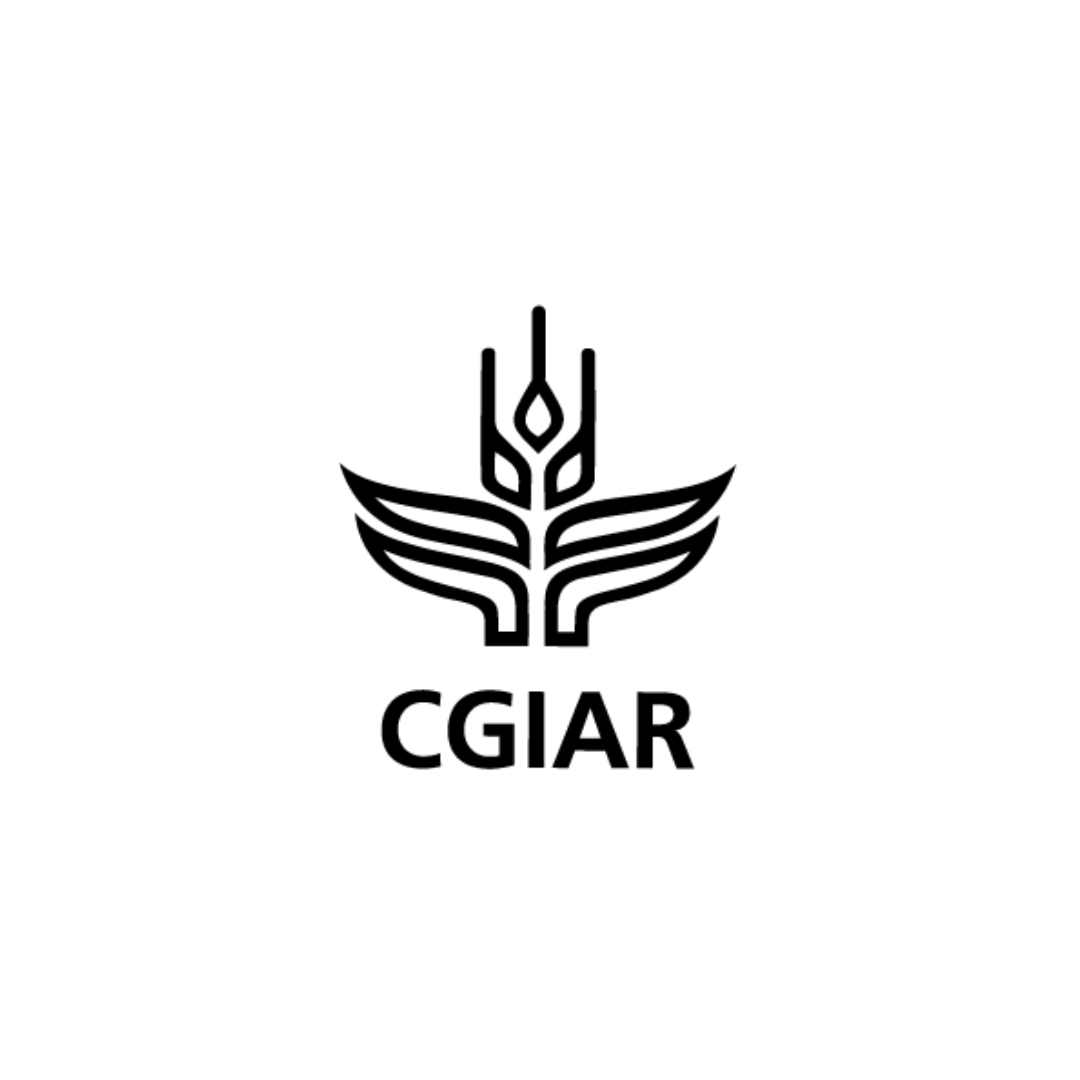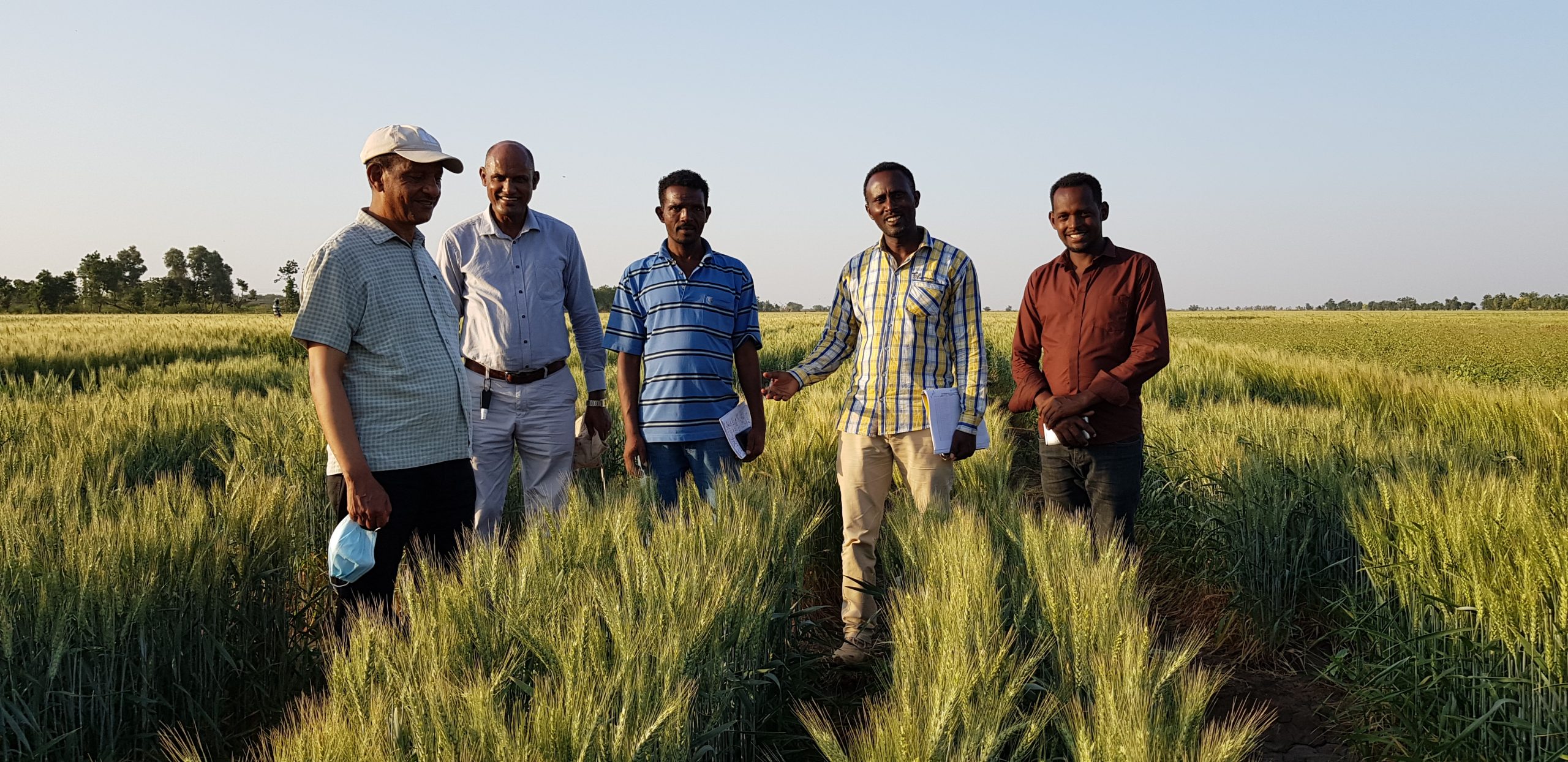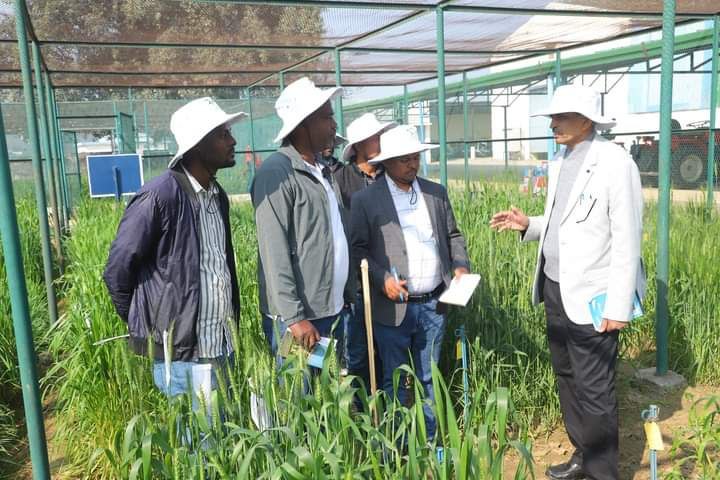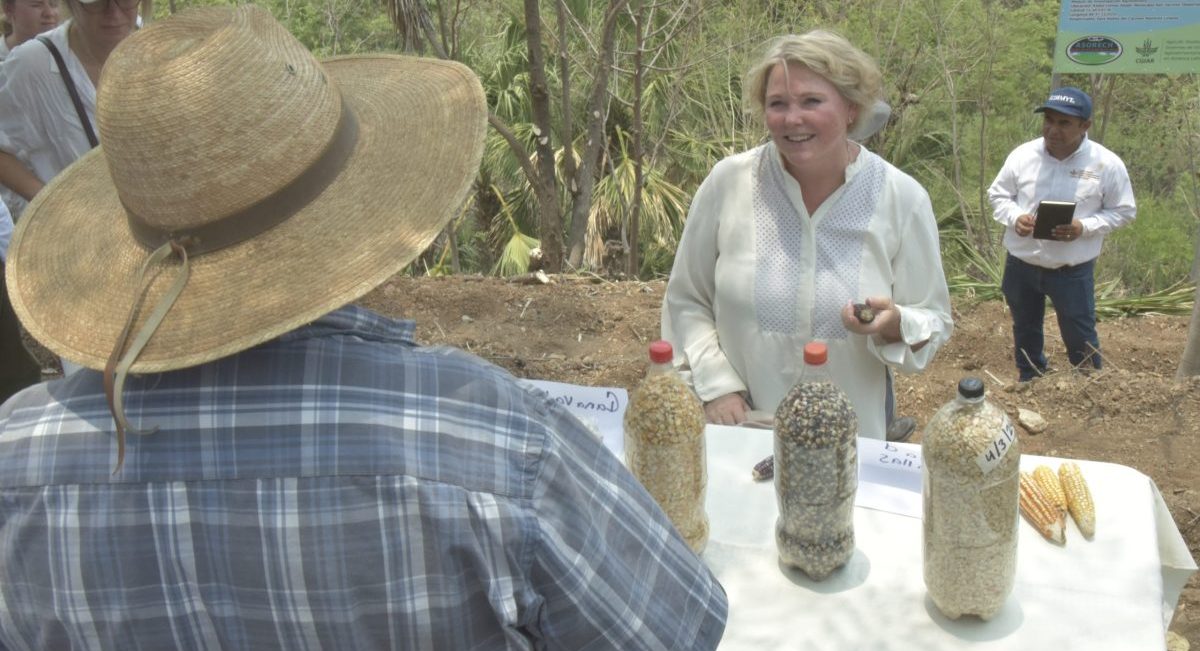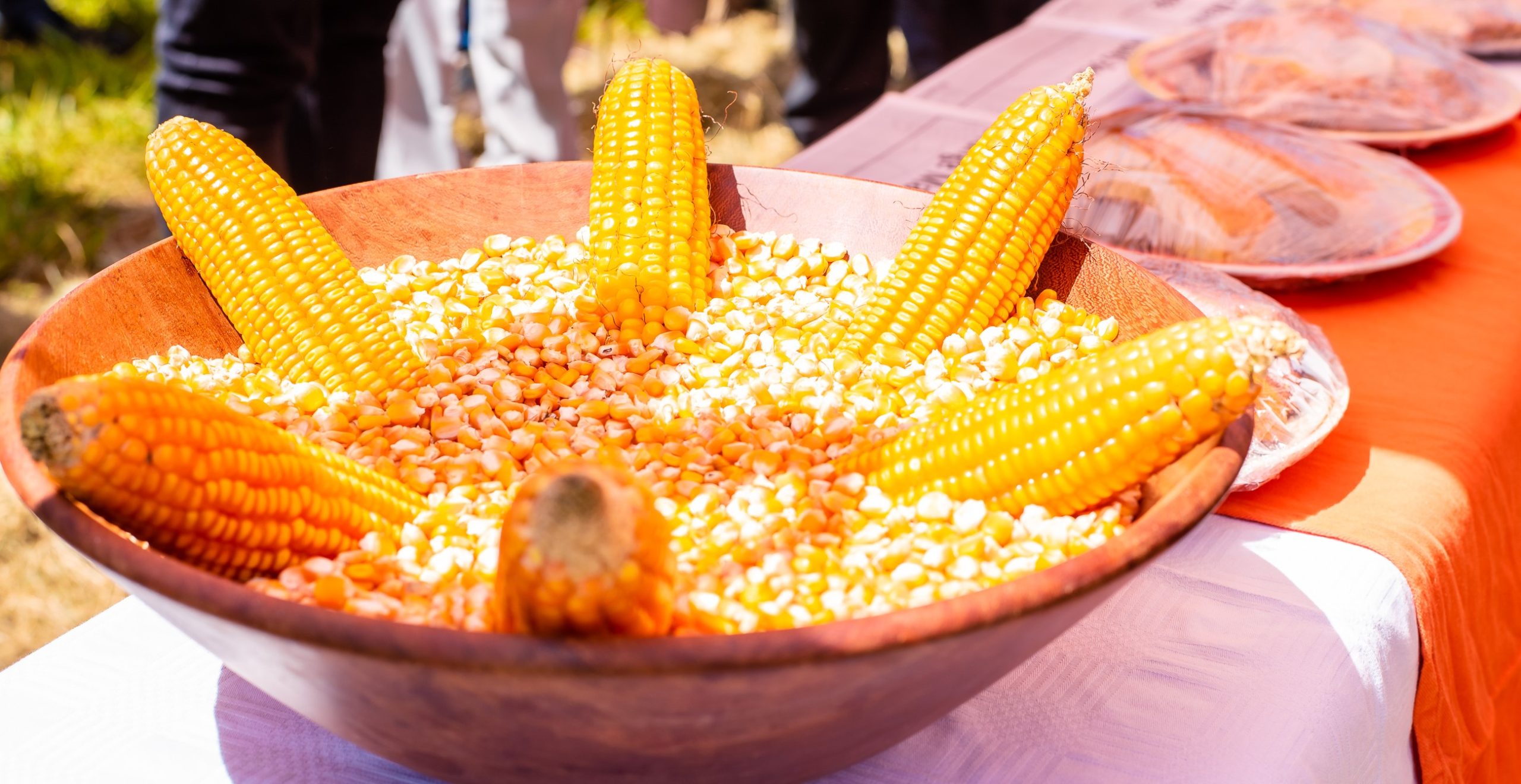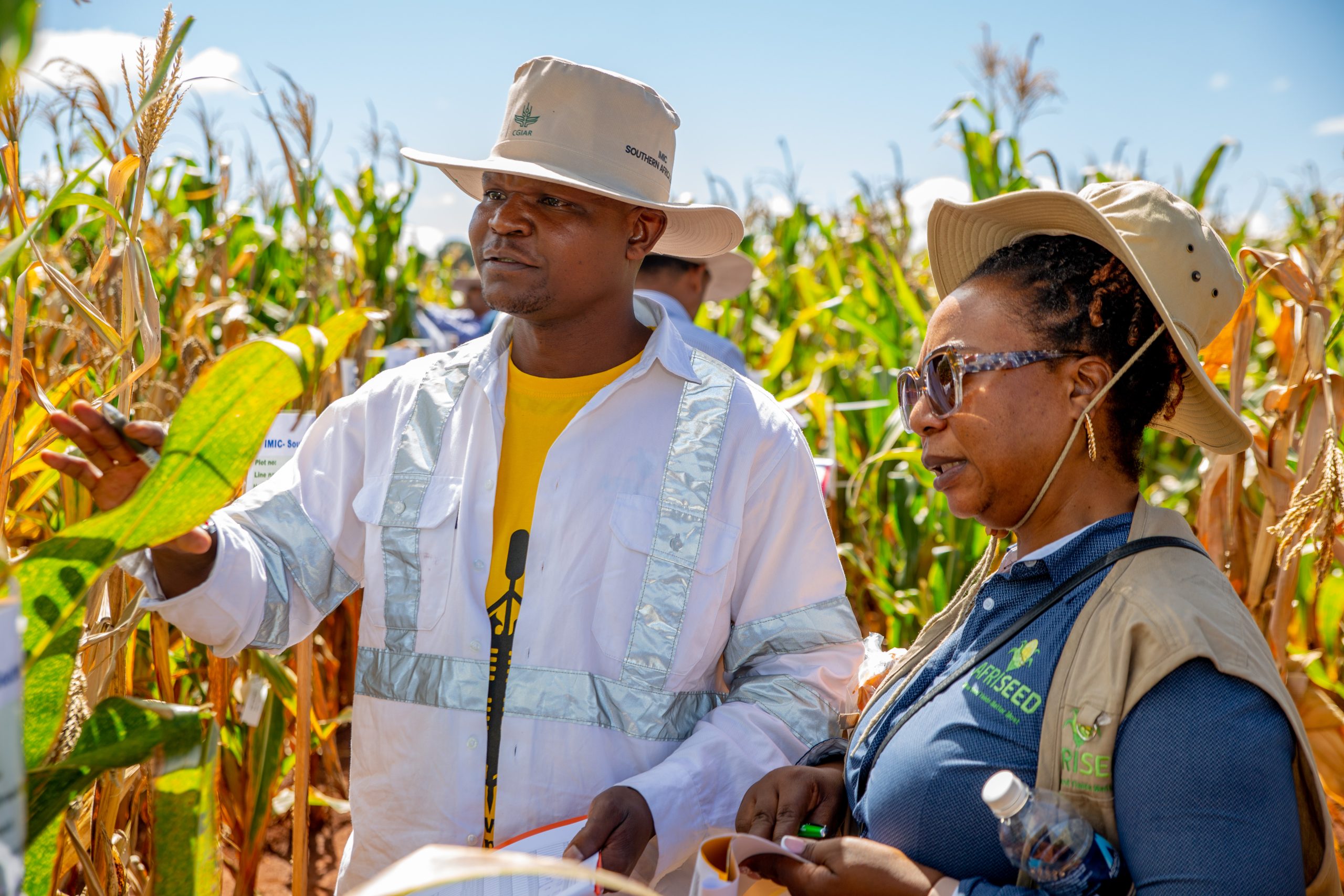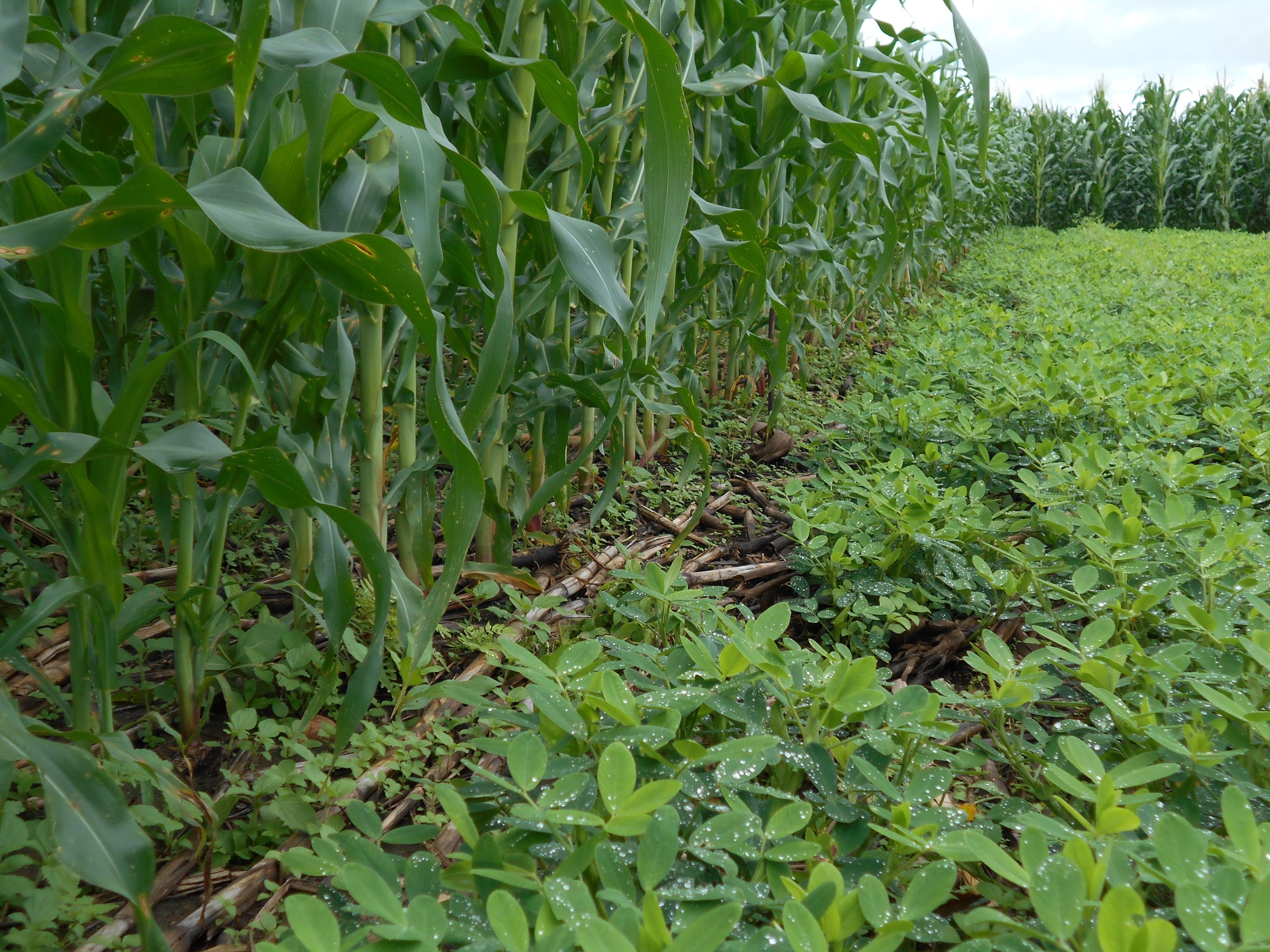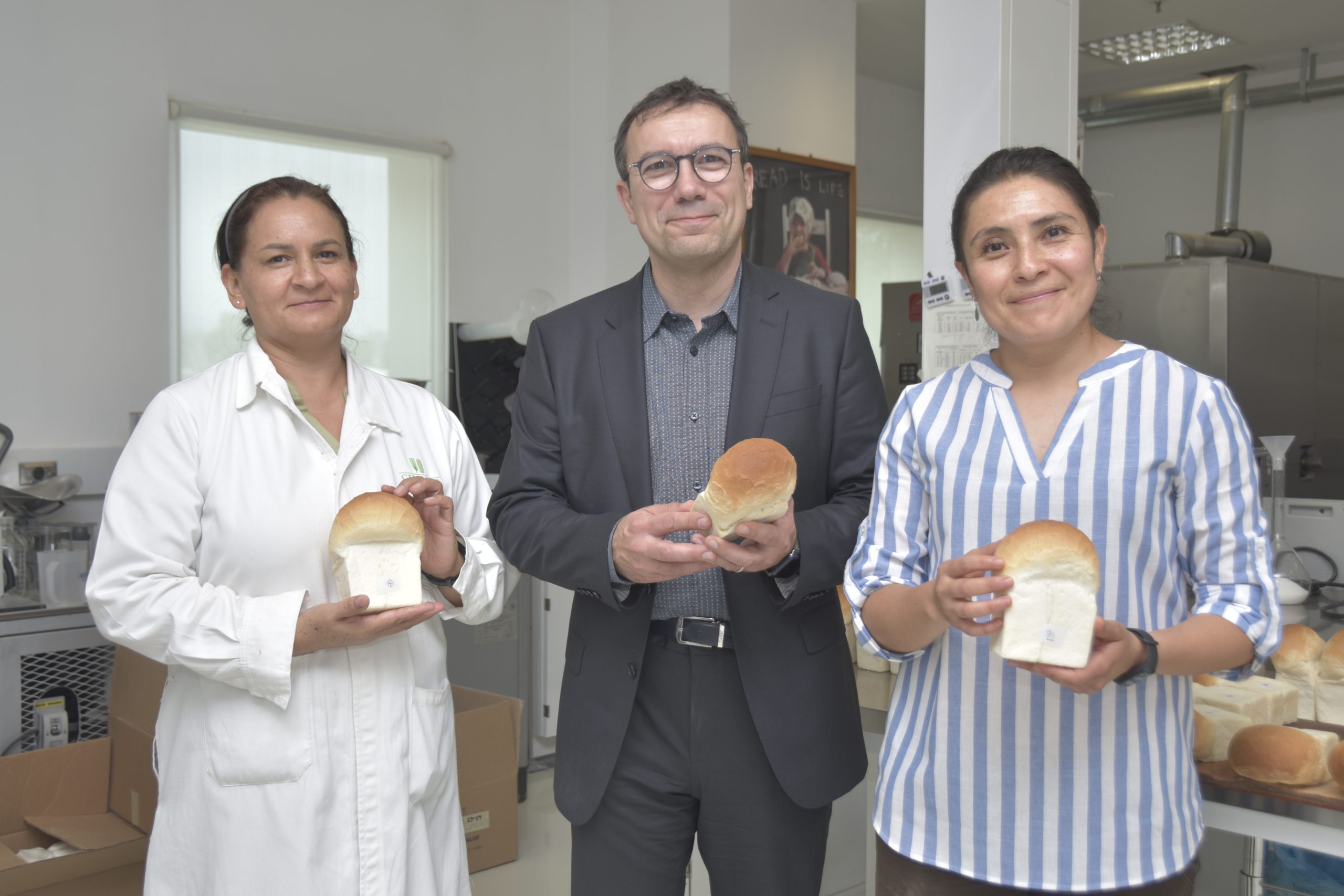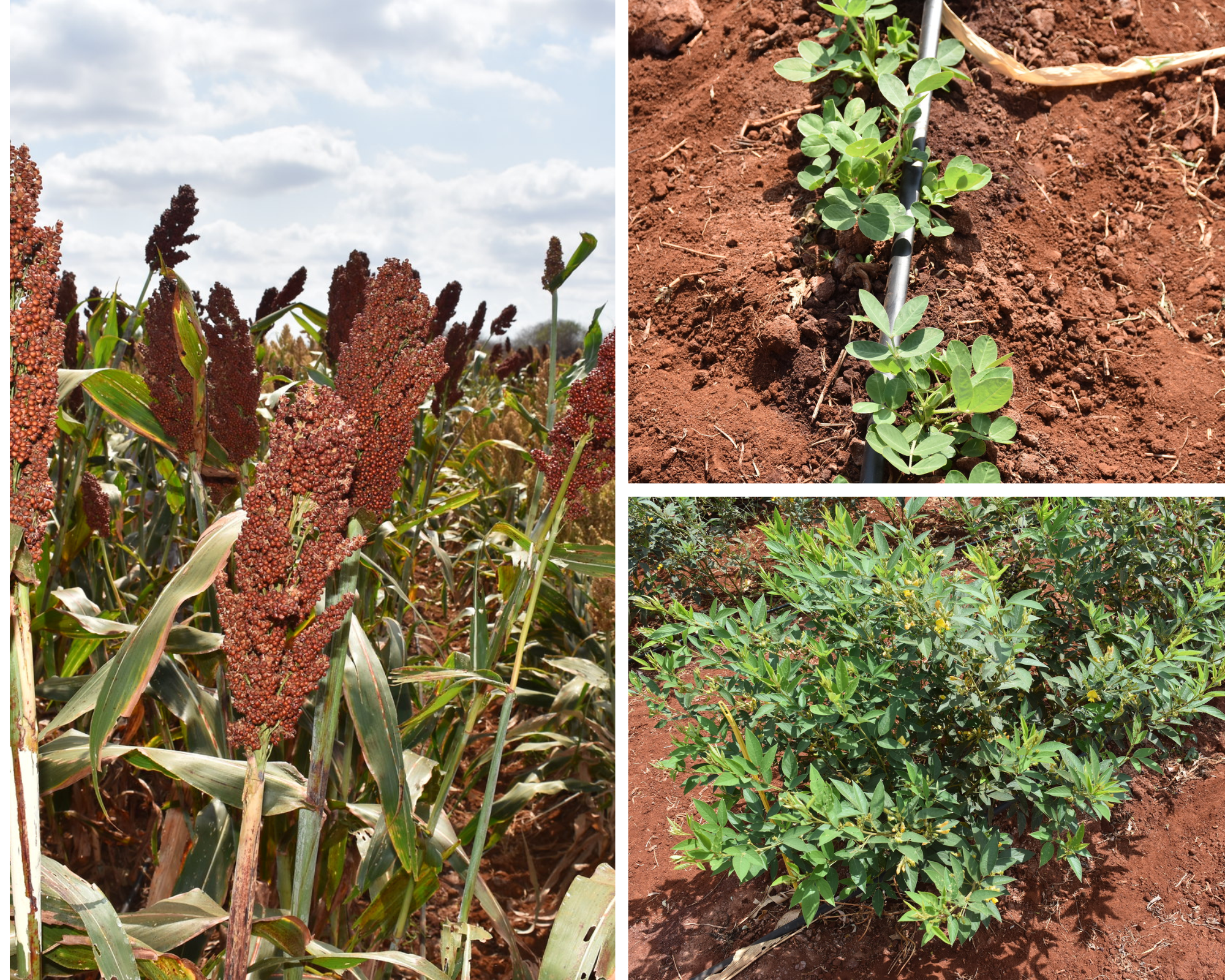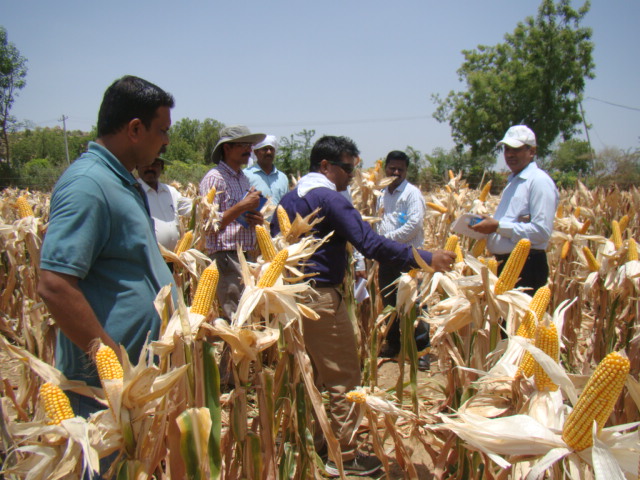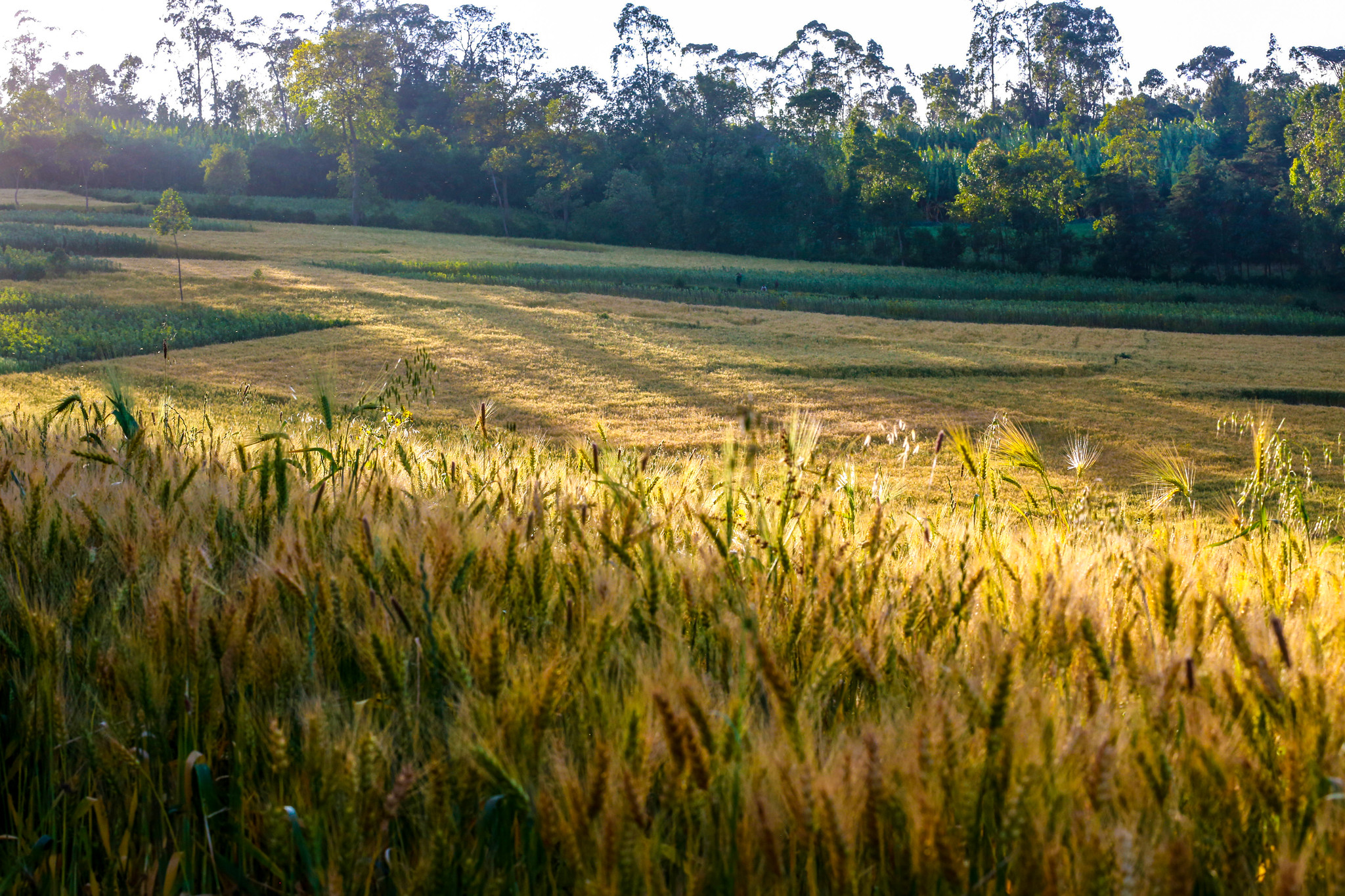Blogs
Sudan: Catastrophic hunger amid conflict creates a crisis of instability across northeast Africa
 Gender equality, youth and social inclusion
Gender equality, youth and social inclusion
CGIAR calls for a coordinated, global response to support the transformation of agrifood systems in Sudan.
Transforming Agriculture Together: Insights from the Ukama Ustawi Share Fair
 Climate adaptation and mitigation
Climate adaptation and mitigation
Source: CGIAR ()
CIMMYT showcased sustainable agriculture at the Ukama Ustawi Share Fair to enhance resilience and farmer livelihoods.
New heat-tolerant wheat varieties prove fruitful for Ethiopia’s irrigated lowlands
 Climate adaptation and mitigation
Climate adaptation and mitigation
The release of new lines by the ADAPT-Wheat project will expand Ethiopia’s total farming area and wheat production by opening up lowland farming opportunities.
Ethiopian researchers travel to India to strengthen knowledge regarding increasing wheat productivity
 Capacity development
Capacity development
As part of ADAPT-Wheat, four scientists exposed to the latest technologies, methods, and equipment.
Representatives of the Norwegian Government visit innovative plot in Guatemala
 Gender equality, youth and social inclusion
Gender equality, youth and social inclusion
Representatives of the Norwegian Government and international research centers visit plots of Guatemalan farmers participating in CGIAR’s Latin American Regional Initiative, AgriLAC Resiliente, which promotes the InnovaHubs model developed in Mexico by CIMMYT and its collaborators.
Cultivating healthier communities with provitamin A maize varieties
 Nutrition, health and food security
Nutrition, health and food security
A CIMMYT-led study highlights how provitamin A maize could make a real difference in vitamin A intake of smallholder farmers in rural areas of Zimbabwe.
Unlocking genetic innovations through collaborative pathways
 Climate adaptation and mitigation
Climate adaptation and mitigation
The International Maize Improvement Consortium for Africa field day in Harare enabled CIMMYT to showcase genetically diverse maize lines, have structured dialogues with diverse stakeholders, and review and refine breeding strategies and approaches.
Over 5,000 Busia farmers to benefit from Kalro certified millet seed
 Nutrition, health and food security
Nutrition, health and food security
Source: The Star ()
It’s time to scale: Emerging lessons from decades of Conservation Agriculture research in Southern Africa
 Climate adaptation and mitigation
Climate adaptation and mitigation
ACASA’s research yields not just data but seeds of hope, foreseeing a transformative future in CA adoption, shaping African agriculture and beyond.
New CGIAR Deputy Executive Managing Director warmly welcomed at CIMMYT
 Innovations
Innovations
Last week, CIMMYT welcomed Guillaume Grosso, CGIAR’s new deputy executive managing director, to its headquarters in Texcoco, Mexico.
Expression of interest: VACS Capacity Project
 Capacity development
Capacity development
USAID has partnered with CIMMYT to implement the Feed the Future VACS Capacity Activity.
Re-imagining heat tolerance traits in wheat – part 2
 Climate adaptation and mitigation
Climate adaptation and mitigation
Source: Seed Quest ()
CIMMYT and partners are developing heat-tolerant wheat varieties using advanced technologies.
Heat tolerant maize: a solution for climate change-induced 360◦ water deficits
 Climate adaptation and mitigation
Climate adaptation and mitigation
Heat tolerance and high yield potential are essential traits in maize to adopt climate change effects in lowland tropics.
Malawi faces a food crisis: why plans to avert hunger aren’t realistic and what can be done
 Nutrition, health and food security
Nutrition, health and food security
Source: EconoTimes ()
CIMMYT experts, including Mazvita Chiduwa, stress that importing food is the only solution to prevent hunger in Malawi due to severe drought.
New innovative crops could significantly reduce agriculture’s climate change impact and environmental footprint
 Climate adaptation and mitigation
Climate adaptation and mitigation
The Novo Nordisk Foundation has awarded a grant of up to USD 21.1 million to CIMMYT for a groundbreaking initiative to mitigate the environmental impact of agriculture, by developing new wheat varieties that are capable of reducing agriculture’s nitrogen footprint. The CropSustaiN initiative could have sweeping implications for global food security and environmental sustainability.
